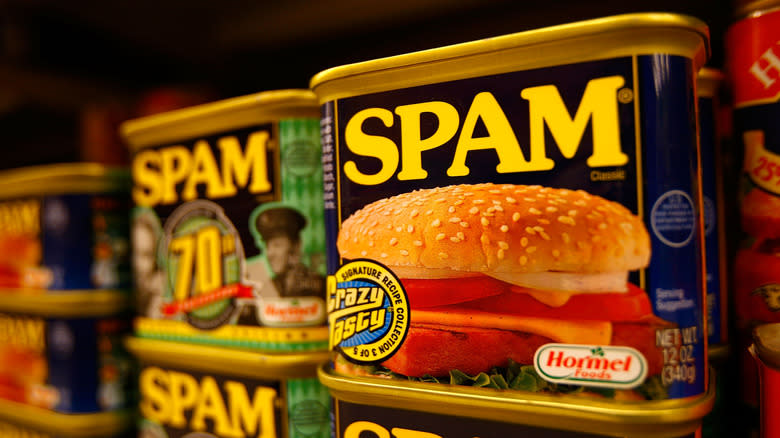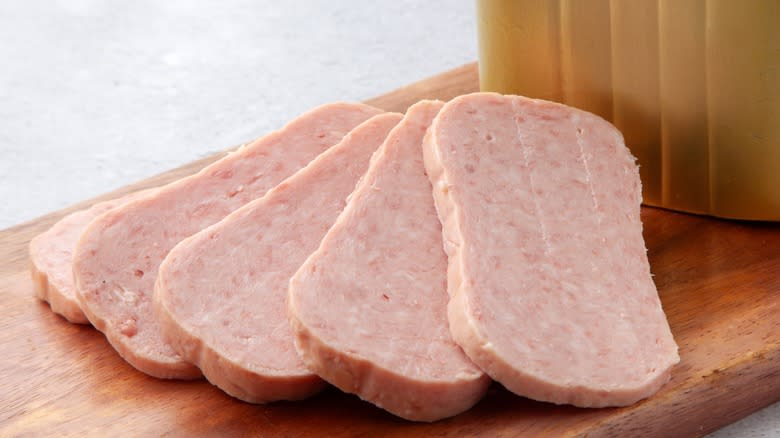The Spam 'Fact' You Probably Shouldn't Believe

Maybe the most famous product of Hormel Foods, Spam has a somewhat varied reputation. On one hand, soldiers during World War II referred to it as "ham that didn't pass its physical." Even future president Dwight Eisenhower confessed to making jabs about it. On the other hand, Spam musubi is a classic Hawaiian dish (fitting since World War II played a role in Spam's popularity in Hawaii) that has made its way into the broader global consciousness. When you have a divisive product, people will inevitably start believing things that may not be true.
There's a bunch of gossip about Spam, and the most basic has to do with its name. Some people believe the name is an acronym for something like "Scientifically Processed Animal Matter" or "Special Processed American Meat." There's also the idea that it means "spiced ham" -- a fabrication Hormel itself once leaned into. None of those are ultimately true, though; in point of fact, the name doesn't really have any secret meaning. This may be less exciting than some other theories, but it's the best we've got, given the available evidence from its history.
Read more: What These Imitation Foods Are Actually Made Of
The Company Has Contradicted Itself On What The Name Means

The history of Spam's name gets slightly contradictory because company president Jay Hormel said during its rise to popularity that the name comes from "spiced ham." Since his company named it, that would seem to settle the matter. But Hormel has changed its tune in the intervening decades, now insisting on Spam's website FAQ that the product's name is a mystery "known by only a small circle of former Hormel Foods executives."
But is it, though? Apparently, the name was conceived by actor Ken Daigneau, the brother of a Hormel executive, at a New Year's Eve party. Daigneau won a $100 prize for his winning name, but he already had the moniker holstered, later admitting he'd come up with it previously and held onto it because he liked how it sounded. If this is true -- and since the man who came up with the name says it is, it's hard to argue with it -- then "spam" doesn't mean anything other than that it sounds kind of snappy.
People Have Come Up With All Sorts Of Fake Acronyms For It

Nevertheless, the myths about it being an acronym persist. While "Scientifically Processed Animal Matter" is the most popular choice here, it's far from the only one. "Something Posing As Meat" is tongue in cheek (Hormel even addresses this one on its website), but "Shoulder of Pork and Ham" sounds more believable, as does "Special Processed American Meat." Again, this is just gossip; Spam's name doesn't have meaning. To be fair, Hormel probably isn't helping matters by insisting on marketing it under "SPAM" in all caps.
If you fell for this fake acronym story, though, don't feel bad; there are a handful of false facts about Spam we've all believed. Now that you know the truth, you'll have to be burdened with the knowledge that "spam" likely doesn't have any secret meaning.
Read the original article on Daily Meal

